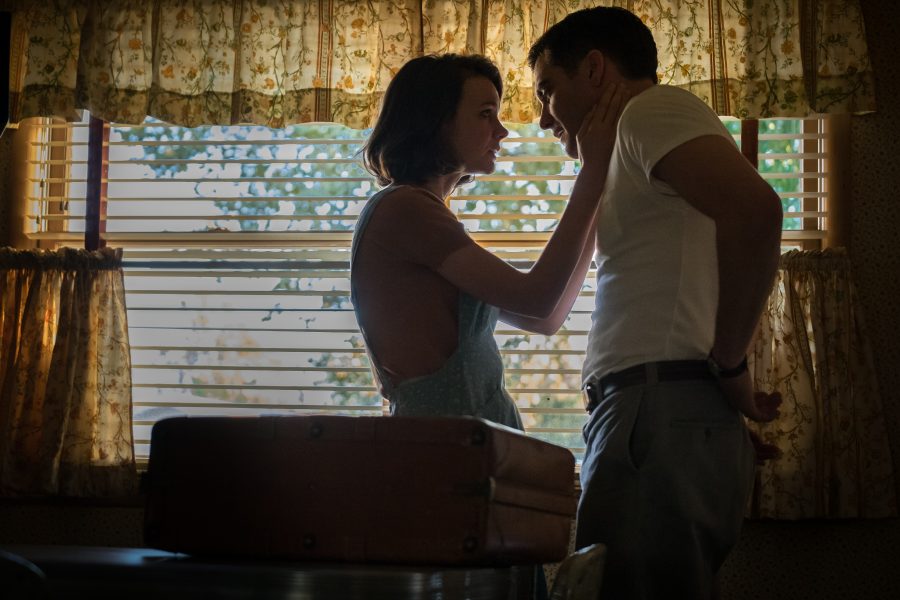You join them for dinner — the Brinsons. Enter loving housewife Jeanette (Carey Mulligan), hard-working man of the house Jerry (Jake Gyllenhaal) and their 14-year-old skamp, Joe (Ed Oxenbould). So still and so perfect, watching them feels akin to beholding a painting. Step a bit closer though, and cracks in the veneer begin to dominate your sight.
“Wildlife,” Paul Dano’s directorial debut, adapted from the 1990 Richard Ford novel of the same name, is a penetrative portrait of a 1960s nuclear family on the verge of a meltdown. It’s the quiet disintegration of a marriage from the perspective of the couple’s young son, catalyzed by the father’s job loss in a time where employment was an irrevocable necessity for male validation.
“They don’t want small people like us to get ahead,” Jerry tells Joe after he’s fired from his job at the country club. A brokenness flickers in his now sallow eyes. They’re sitting in the parking lot of a convenience store where Jerry had just bought a pack of beer; Joe notices the instant his father begins to wither away.
Gyllenhaal’s Jerry is a poignant embodiment of castrated masculinity. He’s offered his job back but won’t take it — his ability to provide for his family has been threatened, and he’d sooner run for the hills than admit the fact. So that’s what he does. Joe comes home from school to find out that his father will be leaving to work for measly pay for an indefinite amount of time with no guarantee of when he’ll return. Jeanette is, of course, beside herself. It’s reckless and selfish and her fear of abandonment rings loudly in her voice, but it falls on deaf ears. Jerry needs to prove to himself that he’s still here, and still worth something, anything. They can’t understand each other, and we see the marriage slowly turn belly-up, up close and in real time, in their quaint, Midwestern living room. Then, just like that, Jerry’s gone, leaving a smelly cloud of feigned machismo in his wake.
Joe is left to witness his mother grapple with the role she’s been forced to play in this mid-century household. With an utterly stunning performance by Mulligan, Jeanette reveals herself to be more human and more flawed than Joe ever cared to know.
Jeanette quickly silences her self-pity over being left alone in the bleakness of Montana but remains directionless in her embrace of this new independence. To make ends meet, Joe gets a part-time job at a photographer’s studio and she begins working as a swimming instructor at a YMCA. It is there Jeanette meets Warren Miller (Bill Camp), a wealthy divorce who she convinces herself may offer a path to that enigmatic feminine liberation. She doesn’t know what she wants, nevermind how to fully escape her suffocating ennui, so she follows impulse and it leads both her and Joe to an unpleasant dinner at Warren’s home. Joe is sandwiched between their gross, sexually charged small talk, and later watches, frozen, as his mother throws herself at this almost-stranger. Joe is forced to grow up in a way he hasn’t yet begun to understand, in a way that 14-year-olds shouldn’t have to.
In “Wildlife,” Paul Dano taps into a load of emotion in a nuanced way, but also one of immense universality. We cannot choose our parents, but we are impressed by everything they do — for better or worse. It is a case study of the invisible traumas we experience at the hands of those who raise us, set against the backdrop of a wide, breathtaking Montana sky.
Email Elizabeth Crawford at [email protected].





















































































































































